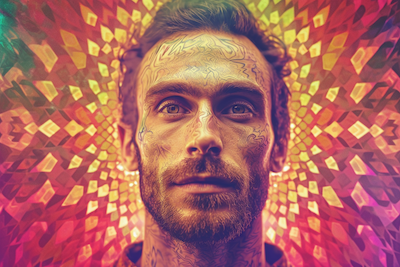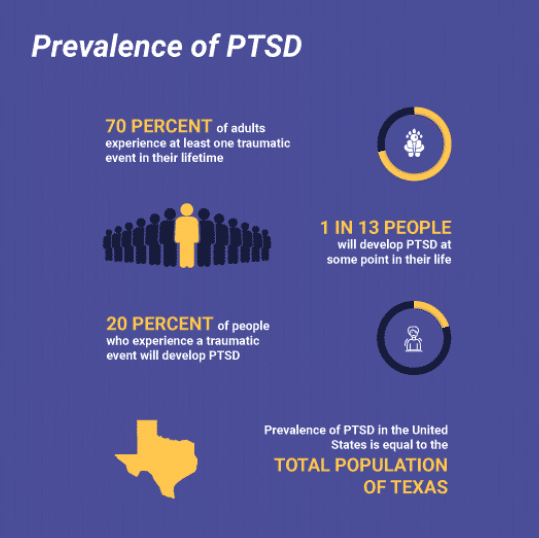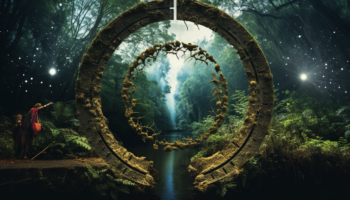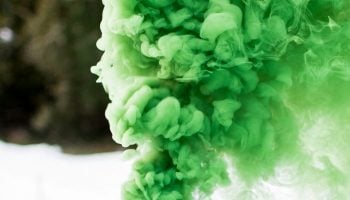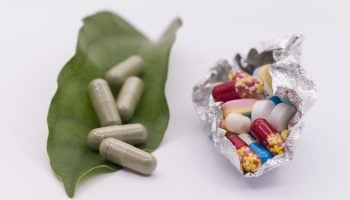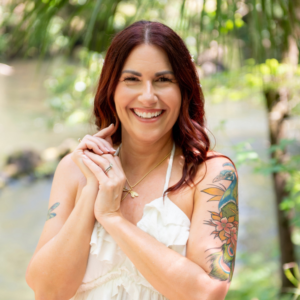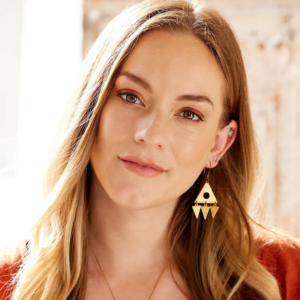Disclaimer: Psychedelics are largely illegal substances, and we do not encourage or condone their use where it is against the law. However, we accept that illicit drug use occurs and believe that offering responsible harm reduction information is imperative to keeping people safe. For that reason, this document is designed to enhance the safety of those who decide to use these substances.
There is a growing body of evidence indicating that psychedelic medicines such as psilocybin, DMT, and MDMA can provide real and lasting benefits for people living with mental health conditions including post-traumatic stress disorder (PTSD).
Ayahuasca is also an alternative for people with PTSD who have tried conventional treatments like talking therapy and medication with little to no success.
This article will explain what research reveals about the potential of ayahuasca to treat PTSD, including real-life examples of people who have been transformed by this Amazonian psychedelic brew. We will also address the risks associated with working with ayahuasca.
Many People Who Struggle With PTSD Are Treatment-Resistant
If you experience a traumatic event (either directly or as a witness to one), it’s possible to develop PTSD as a result. This kind of event is shocking and dangerous, as opposed to just stressful. These are events that make you think your life or those of others are in danger.
There are also factors that can heighten your risk of PTSD. If you were directly exposed to a traumatic event, such as in combat or in a car accident, then you are more likely to develop the condition.
Men and women also tend to experience different types of traumatic events. Women are more likely to be diagnosed with PTSD and are more likely to be victims of sexual assault, whereas men have a greater chance of being traumatized in accidents, physical assault, and combat. Sexuality, gender identity, and race and ethnicity also lead to variations in the risk of trauma.
According to the National Center for PTSD, in the US adult population:
- Around 6% will have PTSD at some point in their lives, while 5% have PTSD in any given year.
- In 2020, about 13 million American adults had PTSD.
- Many people with the condition pursue conventional treatment options like therapy and medication and will eventually no longer meet the diagnostic criteria for PTSD.
- 40% of PTSD patients are able to recover even without treatment. However, about 33% of patients are treatment-resistant: this means they do not experience adequate relief following treatments such as cognitive behavioral therapy (CBT) and/or selective serotonin reuptake inhibitors (SSRIs).
PTSD can be chronic and severe for many, with recurrence inflicting some after recovery as well.
People with PTSD often experience difficulties in normal functioning, isolation, irritability, reliving their trauma in the form of nightmares, and additional issues like depression, drug abuse, and suicidality.
Ayahuasca and PTSD
The ritualized use of ayahuasca is widespread among various tribes in the Amazon Basin. In Peru, vegetalistas (mestizo healers) use the brew to diagnose and treat patients. In Brazil, indigenous shamans use the brew for similar purposes.
Ayahuasca use in the country has also been blended with Christian and Afro-Brazilian religious beliefs, giving birth to Santo Daime and the União do Vegetal (UDV), which are also known as ayahuasca churches. These syncretic religions have helped to spread ayahuasca use to mainstream South American society, as well as contributed to greater awareness of the brew outside the continent.
Ayahuasca is an orally active form of DMT. As a brew, it is traditionally made up of the leaves of Psychotria viridis (which contain DMT) and the stem and bark of Banisteriopsis caapi (these contain MAOIs, which prevent DMT from being broken down in the body when ingested). Both these plants are boiled in water.
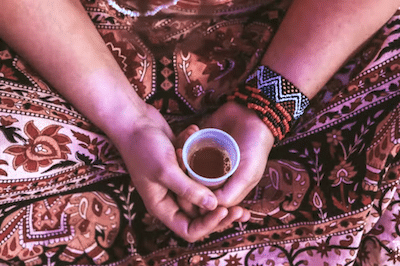
Outside of the indigenous and religious context of use, people from all over the world also travel to South America – as well as Central America (Costa Rica being a hotspot) and throughout Europe (notably Spain and Portugal) – to partake in ayahuasca ceremonies.
Many of these people do so in the hope of alleviating emotional distress, such as debilitating and chronic PTSD. After years of non-responsiveness to treatment, these participants find that one or more sessions with ayahuasca can lead to substantial and lasting relief.
Watch the video below for more information about ayahuasca including benefits, history, legality, and what to look for if you feel called to work with ayahuasca.
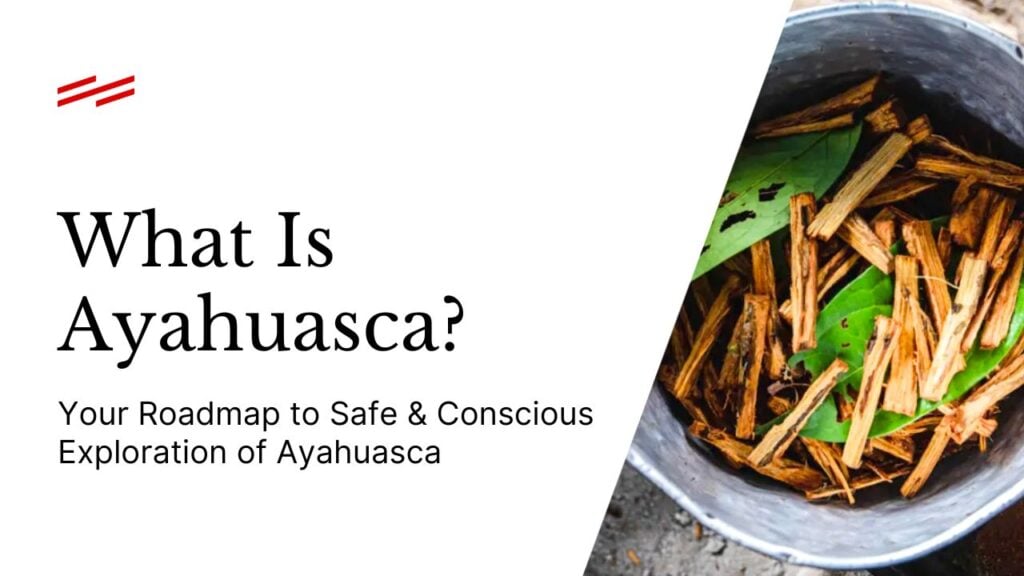
Research on Using Ayahuasca to Treat PTSD
Studies are indicating that ayahuasca can alleviate conditions like depression and addiction, but there is also research – albeit currently limited – suggesting its efficacy in also treating PTSD, which matches many anecdotal reports from ayahuasca retreat attendees.
Preliminary research from Gerald Thomas, who studies addiction at the University of Victoria, British Columbia, found that ayahuasca can reduce drug dependence. Part of the reason for this effect is that ayahuasca can help alleviate the emotional distress associated with traumatic memories, which people sometimes try to numb with substances like alcohol and cocaine.
The Beckley Foundation has also collaborated with the Temple of the Way of Light (an ayahuasca retreat center in Peru) and ICEERS on research investigating the long-term effects of ayahuasca on mental health and quality of life in Western users. Débora González, Ph.D., who presented the findings at Psychedelic Science 2017, states:
Results so far have been striking. Over the course of a retreat – which can range from nine days to three weeks and involve five to eight ayahuasca sessions – we see a reduction in psychopathological symptoms that lasts for three months. We’re yet to conduct the six-month follow-up analysis so I can’t say if this will continue, but it’s clear that the effect is persistent.
One interesting result is that while improvements were observed in participants with four kinds of emotional distress (anxiety, depression, PTSD, and grief), patients with PTSD experienced the greatest benefits. As González remarks:
When we compare quality of life scores before and after ayahuasca treatment, we see that the biggest improvement is in those with PTSD.
Psychedelics, including ayahuasca, seem to “allow access to layers of experience that are beyond the reach of regular therapies,” says González. During the ayahuasca experience, patients can relive the emotional content of their trauma, such as fear and helplessness.
Confronting trauma during an ayahuasca journey makes it akin to exposure therapy, a traditional form of PTSD therapy. Many patients who work with ayahuasca are able to transform feelings of fear, guilt, and shame into more positive emotions like self-love and compassion, thereby meeting their unmet emotional needs.
Researchers also saw an increase in “decentering,” which is the ability to calmly observe your thoughts and feelings and detach them from your sense of self-identity, allowing you to become less judgmental and more accepting towards them.
In a 2018 paper published in Frontiers in Psychology, researcher Antonio Inserra describes his hypothesis for how ayahuasca is able to heal traumatic memories. He states:
As Ayahuasca alkaloids enhance synaptic plasticity, increase neurogenesis and boost dopaminergic neurotransmission, and those processes are involved in memory reconsolidation and fear extinction, the fear response triggered by the memory can be reprogrammed and/or extinguished. Subsequently, the memory is stored with this updated significance.

Grow 1 Year's Worth of Microdoses in Just 6 Weeks
Third Wave partnered with top mycologists to create the world’s easiest and best mushroom growing program (kit, course, and expert support).
- Pre-sterilized and sealed
(ready to use out of the box) - Step-by-step video and text course
- Access to growing expert in community
- Make your first harvest in 4-6 weeks
- Average yield is 1 - 4 ounces (28-108g)
- Fits in a drawer or closet
- Enter info for Third Wave discounts:

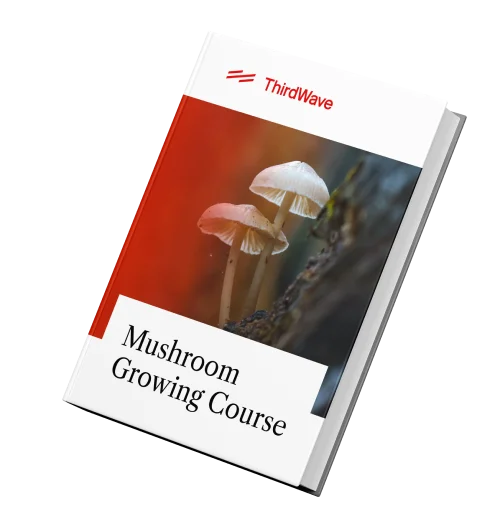
Grow 1 Year's Worth of Microdoses in Just 6 Weeks
Third Wave partnered with top mycologists to create the world’s easiest and best mushroom growing program (kit, course, and expert support).
- Pre-sterilized and sealed
(ready to use out of the box) - Step-by-step video and text course
- Access to experts in community
- Make your first harvest in 4-6 weeks
- Average yield is 1 - 4 ounces (28-108g)
- Fits in a drawer or closet
- Enter info for Third Wave discounts
Real-Life Examples of Healing Trauma Through Ayahuasca
Heroic Hearts Project is a non-profit that offers a program to war veterans who want to pursue psychedelic treatment options, primarily ayahuasca retreats. The organization works with a number of reputable retreat centers all over the world. It helps veterans get the most out of their experiences through preparation before the retreat and integration coaching when they return home.
Jesse Gould, the founder of Heroic Hearts Project, spoke with Third Wave founder Paul F. Austin an episode of “The Psychedelic Podcast,” about how he overcame his own PTSD by working with ayahuasca. Gould, who was an army ranger deployed three times to Afghanistan, said:
I was at that turning point in my life where I knew that just bad life habits would start entrenching themselves. And so fortunately, I ventured there [ayahuasca] and I’m sure many of your listeners have experienced it, and so I had that typical ayahuasca story… [it] changed my life… and just had that idea of, ‘Hey, I have a lot of veteran buddies that are struggling on the verge of themselves doing some bad irreversible decisions.’ And so that’s the inspiration of Heroic Hearts, [which] is really [to] connect veterans to these modalities, these alternative non-accepted modalities, which mostly focuses on psychedelics, especially ayahuasca.
Gould also described some of the most powerful stories he had heard from veterans working with ayahuasca:
So one of the guys was a 20-year army ranger with over 15 deployments under his belt. We had an Australian special forces guy with multiple deployments. So a lot of guys that have seen some stuff. And after the first ceremony, three of the veterans came up to me individually and said that before this, they had had many moments of suicidal ideation and they didn’t think that they would ever go through with it, but they’re on the edge. And they said after just that one ceremony, the idea of suicide was just such a ridiculous notion that they couldn’t even fathom it anymore. And to this day, they’re still on that path and it hasn’t returned. So just profound impacts after a night is one of those things that it’s amazing and it’s awesome to see, and it’s great that it is that effective across the board on the veterans we serve.
There is no shortage of reports of profound healing of trauma through ayahuasca. As one veteran recounted,
The [ayahuasca] ceremony let me see my anger and cry for the first time in years.
Indeed, ayahuasca can provide a greater connection to one’s emotions and emotional release, which are associated with long-term improvements in well-being.
Watch the video below to learn more about Heroic Hearts’ mission to help veterans suffering from military trauma recover and thrive by providing them with safe, supervised access to psychedelic treatments:
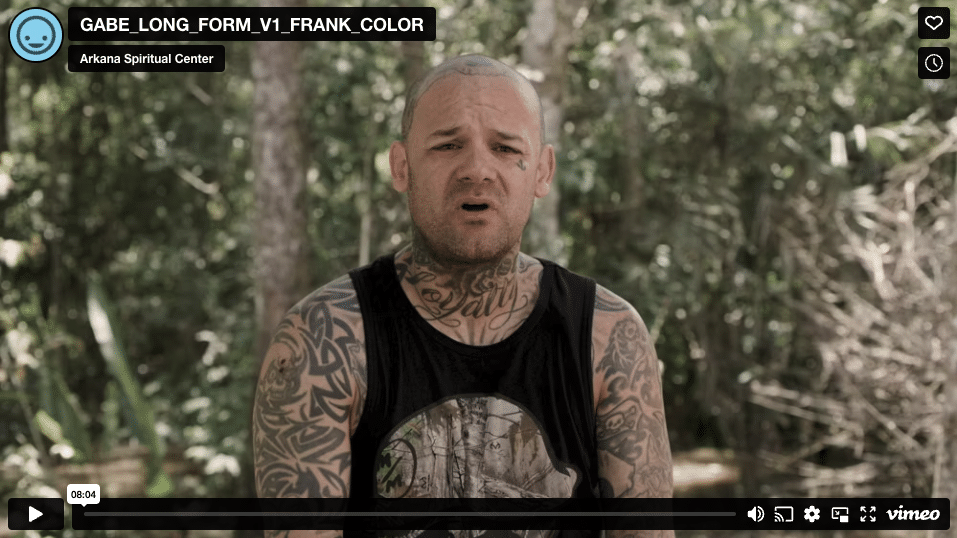
The Potential Risks of Using Ayahuasca to Treat PTSD
Using ayahuasca to relieve PTSD is not without its risks, and anyone considering this psychedelic should be aware of them.
One downside compared to conventional treatments or non-conventional modalities like MDMA is that ayahuasca can bring up powerful, overwhelming, and disturbing visions and memories. Some people may not be prepared for these effects.
In addition, a lack of preparedness can mean that some people resist or shut down during the experience, which can diminish the potential benefits.
A systematic review of human studies on ayahuasca found reports of psychotic episodes associated with ayahuasca use among subjects who had a family history of psychosis and nonpsychotic mania.
While the Temple of the Way of Light screens applicants for a history of psychosis or mania, many ayahuasca retreat centers don’t have a rigorous screening process in place.
You should also be aware that some of the cheaper ayahuasca retreats advertised on the streets of tourist hotspots in Peru, such as Iquitos and Cusco, will offer ceremonies to anyone willing to pay, no questions asked.
A further disadvantage of ayahuasca retreats is that some (but not all) provide little to no psychological support either during or after the ayahuasca ceremony, which can be emotionally challenging.
Research conducted by ICEERS and published in PLOS Global Public Health found that adverse mental health effects in the weeks or months following ayahuasca were reported by 55.9% of the sample (although 88% considered these effects as part of a positive process of growth and integration). Around 12% sought professional help for these effects.
While ayahuasca holds great promise for treating PTSD, this doesn’t mean there’s no risk of mental health worsening as a result. This is why the work of Heroic Hearts Project is so crucial, as it prioritizes preparation and integration, which are essential to both minimizing risks and maximizing benefits.
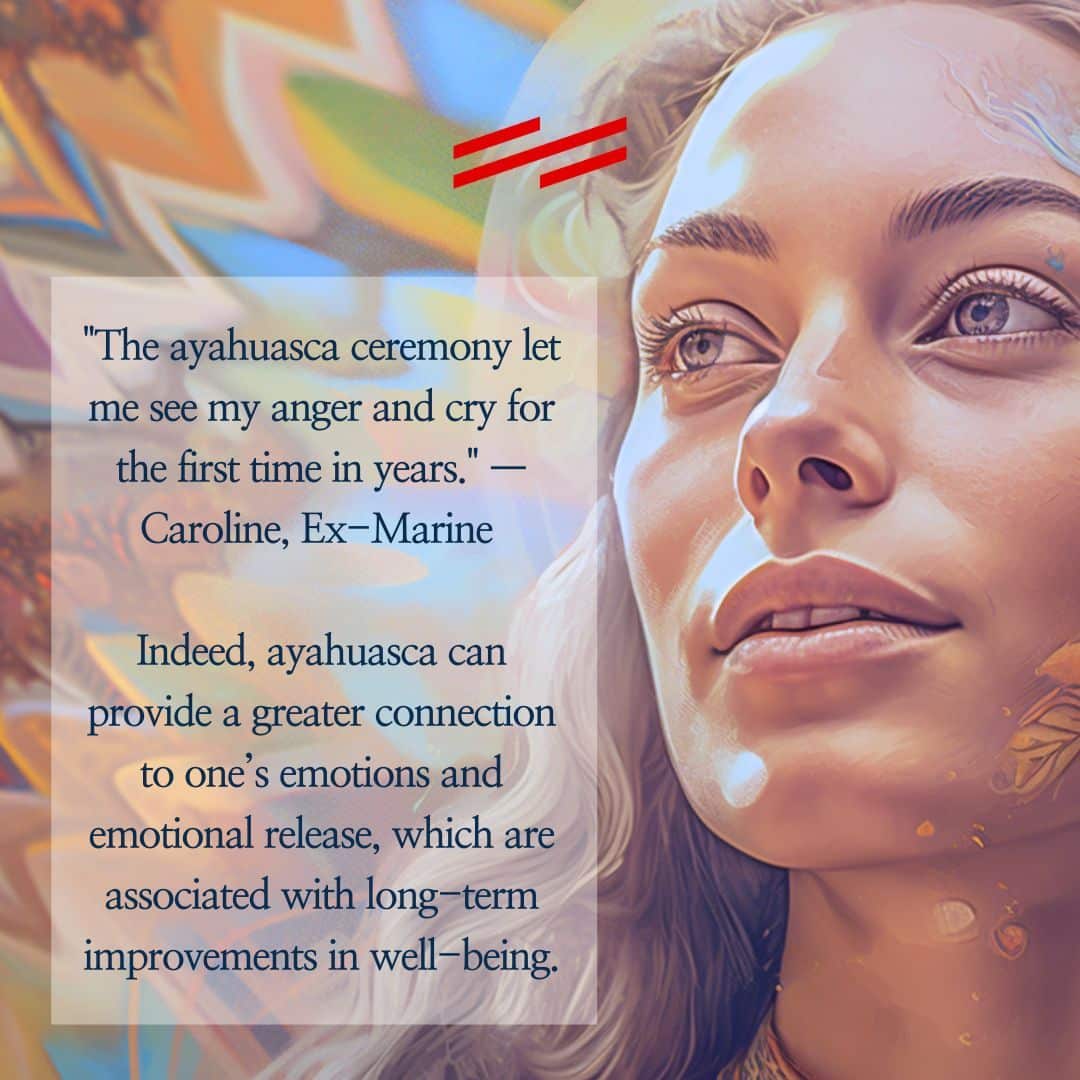
Final Thoughts & Next Steps
Research on the use of ayahuasca to treat PTSD is limited, especially when compared to other options like MDMA therapy and ketamine therapy, where placebo-controlled trials indicate these treatments’ efficacy.
However, the evidence collected so far on ayahuasca’s potential is encouraging and consistent with countless stories of people living with trauma – including combat veterans, who often struggle with severe PTSD – who have experienced recovery through the use of ayahuasca.
That said, if you’re looking to join an ayahuasca retreat or ceremony, you should be aware of the mental health risks and make sure that you choose practitioners who are knowledgeable about harm reduction and can offer adequate psychological support.
If you’re interested in comparing different ayahuasca retreat options, be sure to check out Third Wave’s Directory. This will help you find reputable and vetted ayahuasca and other plant medicine retreats that suit your budget and personal preferences.
Head to The Directory Here
Grow 1 Year's Worth of Microdoses in Just 6 Weeks
Third Wave partnered with top mycologists to create the world’s easiest and best mushroom growing program (kit, course, and expert support).
- Pre-sterilized and sealed
(ready to use out of the box) - Step-by-step video and text course
- Access to growing expert in community
- Make your first harvest in 4-6 weeks
- Average yield is 1 - 4 ounces (28-108g)
- Fits in a drawer or closet
- Enter info for Third Wave discounts:


Grow 1 Year's Worth of Microdoses in Just 6 Weeks
Third Wave partnered with top mycologists to create the world’s easiest and best mushroom growing program (kit, course, and expert support).
- Pre-sterilized and sealed
(ready to use out of the box) - Step-by-step video and text course
- Access to experts in community
- Make your first harvest in 4-6 weeks
- Average yield is 1 - 4 ounces (28-108g)
- Fits in a drawer or closet
- Enter info for Third Wave discounts

